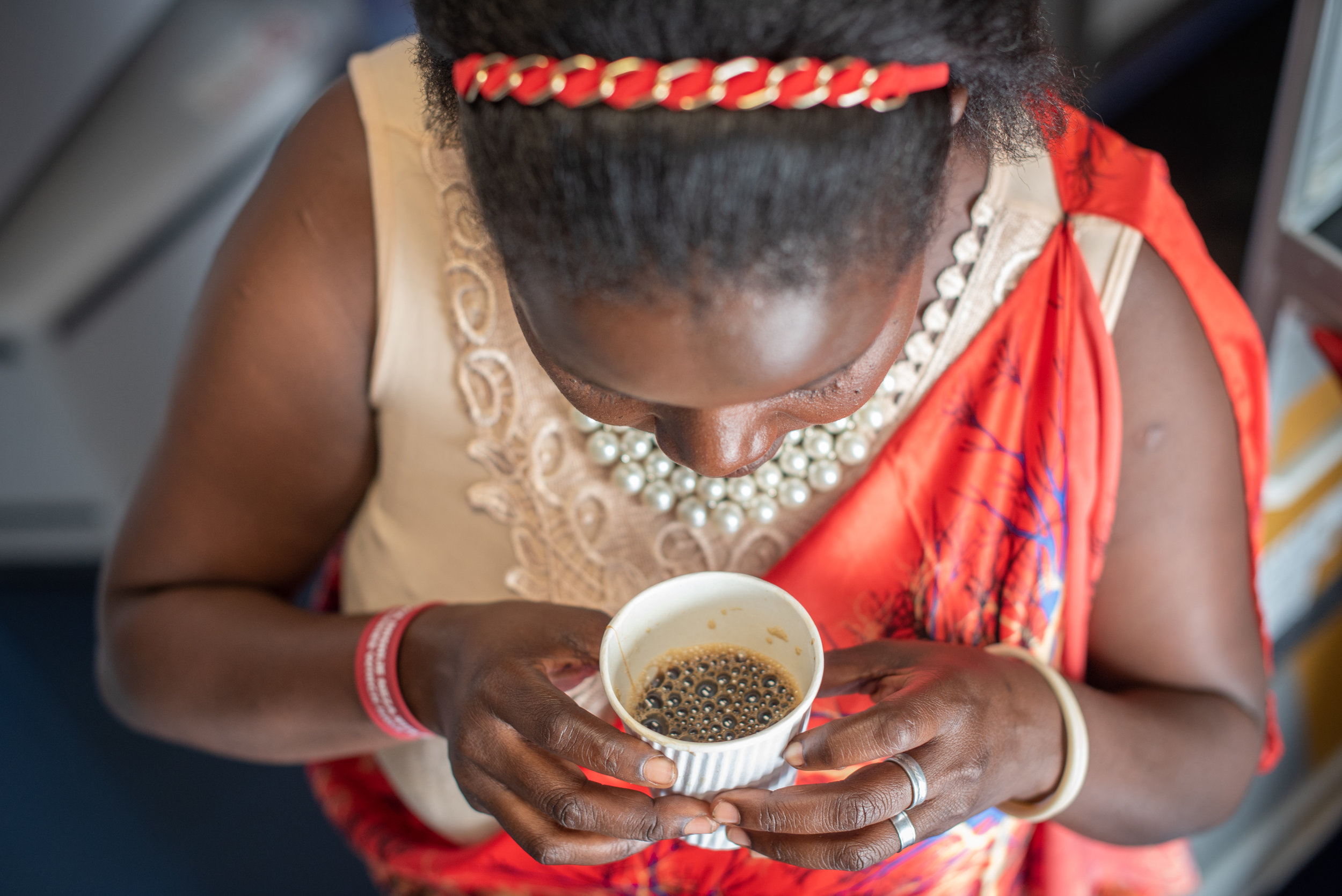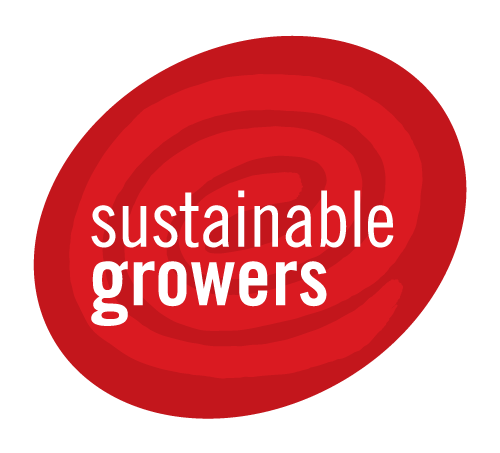
Coffee women and families working remote, small plots of land can’t wait for coffee revenues to trickle down to them.
We help women farmers, and their families, improve their professional approach to growing and trading specialty coffee, so they can form direct, productive relationships with coffee cooperatives, processors, importers and roasters.
Research indicates that yields on farms worldwide can increase by up to +30% if women are given the same productive resources as men. During their first harvest after our training in 2015, graduates from our program experienced a yield growth of 300%.
“ We are the largest gender program available to train women coffee farmers and their families.”
Over 56,000 women have enrolled in programs across Rwanda, Tanzania and D.R.Congo, and since 2021, Sustainable Growers has enrolled women from rural cooperatives in Tanzania.
We invite you to help us expand our efforts to help transform family farms into a family businesses, led by enterprising women.
BACKGROUND
In 2013, Bloomberg Philanthropies engaged Sustainable Growers to bring innovative training to the coffee business and had a commitment to bring smallholder farmers up the value chain. In seeking out women farmers with minimal awareness of coffee processing as part of the greater value chain, our mission became 3-part, with land from the government, infrastructure from the cooperatives, and training from Sustainable Growers. Our coffee program, designed to train women farmers from seed to sip, began with only two cooperatives, Nyampinga and Twongere Umusaruro wa Kawa. With transformative efforts reaching over 40,000 women coffee farmers with a secondary impact to over 200,000 family members in Rwanda, Sustainable Growers leveraged this demonstrated impact to expand to the Democratic Republic of Congo to over 56,000 women coffee farmers with a secondary impact to over 235,000 family members.
To nurture the untapped potential and ambitious dreams of these initial cooperative members, we developed the Relationship Coffee Women model to equip young women in the community with skills to provide extension services to farmers. This sparked an immediate transfer of knowledge and skills to many more women and community members. Sparking a domino effect to impact communities at a large scale for lasting change.
To date, over 56,000 women farmers in Rwanda, Tanzania and the Democratic Republic of Congo have been enrolled in the Sustainable Growers coffee training program which helped to increase the value of their crops in the first months of training by more than 40%. Multiple beneficiaries have seen their coffee businesses grow from coffee farming to owning a coffee washing station, and direct selling in the global marketplace. Upgrading the coffee quality for women farmers has been so successful that consumers and roasters have paid above premium prices for their coffees.
Women beneficiaries have been flown all over the world to attend Specialty Coffee Association, World Coffee Expo, African Fine Coffees Association, and many other global coffee forums to participate in panel discussions and meet with buyers to negotiate trade deals. The women of TUK were featured in the Sept 2019 Edition of National Geographic Magazine.
In 2016, we established our own social enterprise brand called Question Coffee to build local demand for high-quality, specialty. coffee by the graduates of the training program. Their products are sold locally to major hotels, restaurants, and national parks in Rwanda, and now expanding pathways to be sold regionally and internationally.
The Question Coffee Academy provides internationally certified barista training for youth employment opportunities. Returns from Question Coffee are directly reinvested into our training program.
Sustainable Growers Program was selected in the Best Practices projects to be showcased in Dubai Expo 2020. The Question Coffee program was also selected as one of the winning 50 development projects from around the world that are providing tangible solutions to the world's biggest challenges, to be spotlighted at the Sustainable Development Goals Best Practice Programme presented at the Dubai Expo 2020. Partnering with governments, we see opportunities to replicate this transformation model into other high-value crops for export with a focus on transforming entrepreneurial stakeholders, mainly women, youth, and their communities, across the value chain. We will soon expand our coffee program to Tanzania with operations in the Songwe Region.
“Sustainable Growers. Transforming Communities.”
